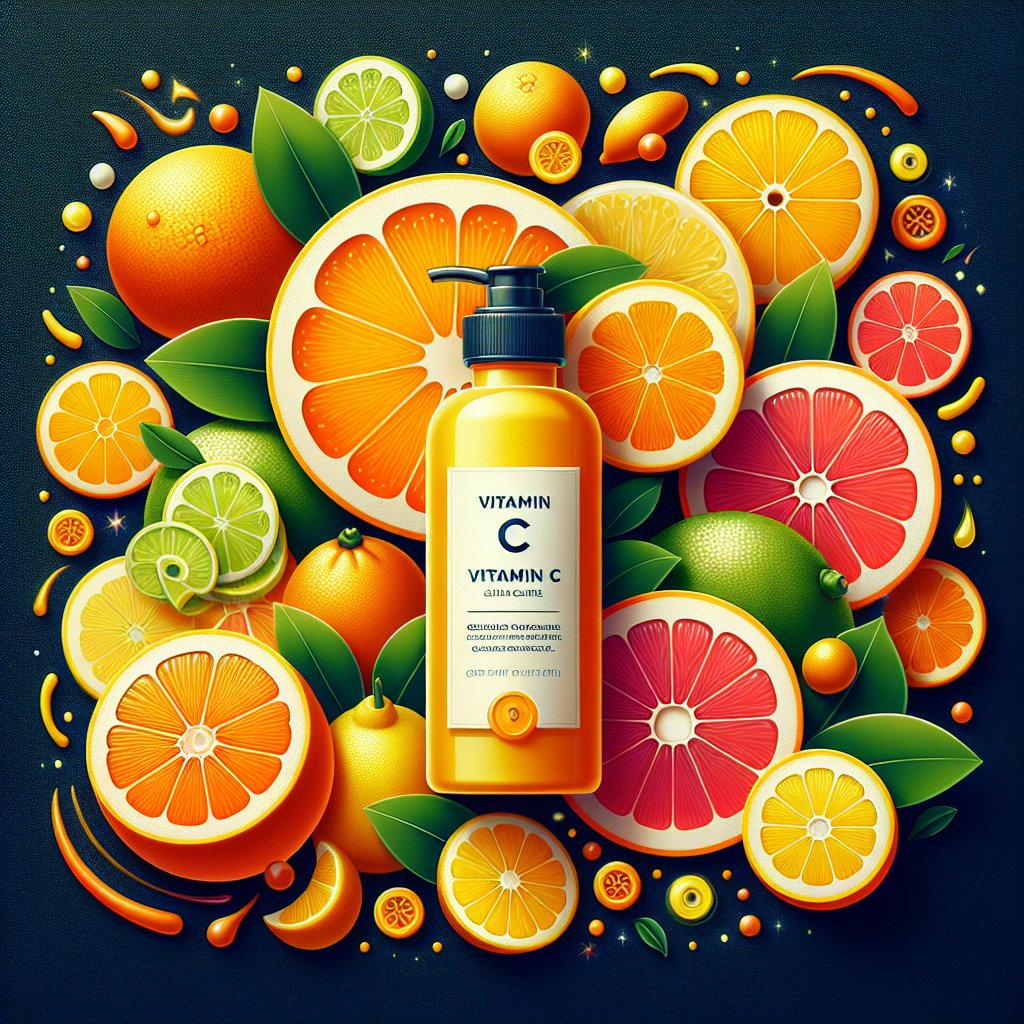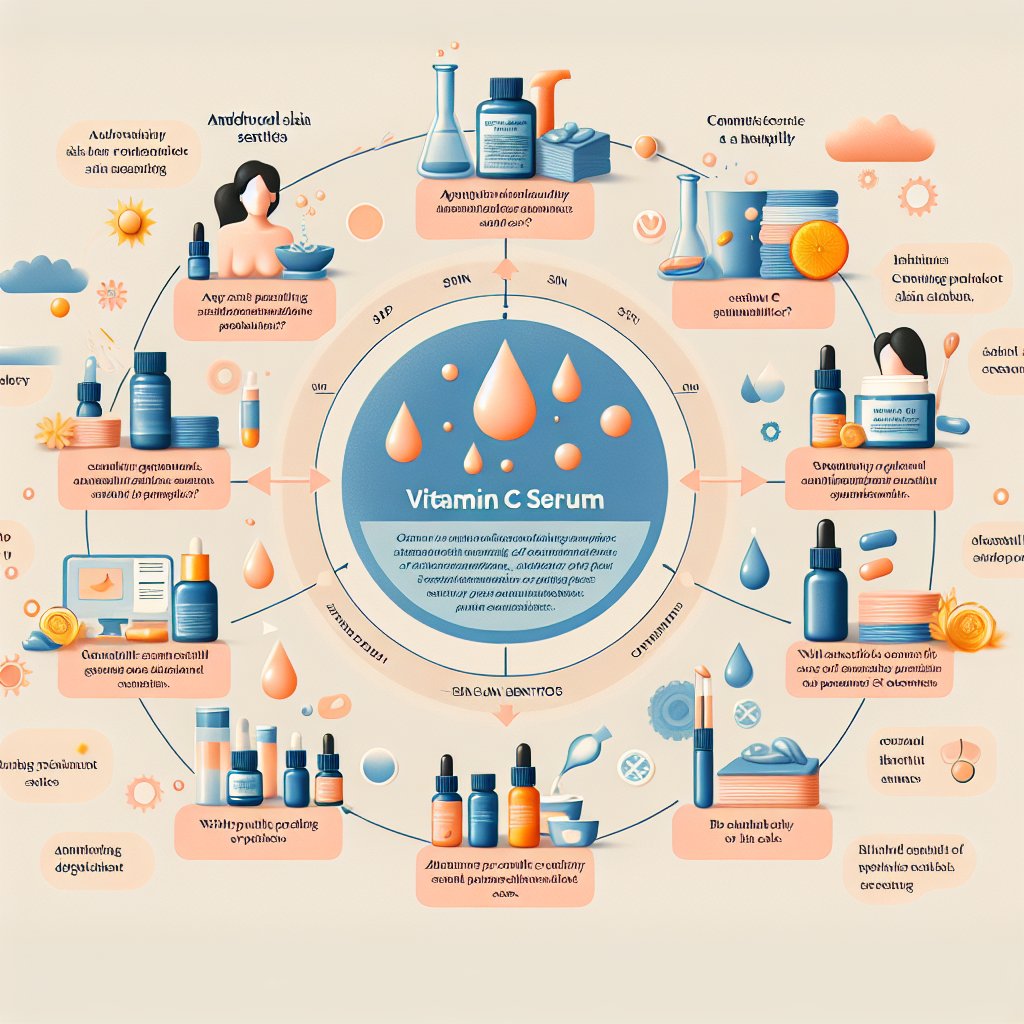Warning: Vitamins to Avoid After Surgery! Find Out Which Ones Can Hinder Your Recovery Process
The Importance of Vitamins in Post-Surgery Recovery
When it comes to post-surgery recovery, ensuring that your body has the right nutrients is essential for a speedy and successful healing process. Vitamins play a crucial role in supporting the body’s functions and promoting recovery after surgery. They are involved in tissue repair, immune function, and overall health, making them indispensable for anyone going through the recovery phase.
Research has shown that adequate intake of vitamins can significantly improve wound healing, reduce inflammation, and prevent postoperative complications. Therefore, it’s important to pay close attention to the types and amounts of vitamins you consume after surgery to support your body’s healing process effectively.
Potential Risks Associated with Certain Vitamins After Surgery
While vitamins are generally beneficial for health, there are potential risks associated with certain vitamins after surgery. In some cases, specific vitamins can interfere with the body’s natural healing processes, hinder recovery, or even lead to adverse effects. It’s crucial to be mindful of these risks and make informed choices regarding vitamin supplementation during the post-surgery period.
So, how do we navigate this delicate balance of ensuring adequate vitamin intake while avoiding potential hindrances to the recovery process? Let’s delve into the specific vitamins to avoid after surgery and understand the reasons behind their exclusion.

Vitamins to Avoid Post Surgery
As you focus on your recovery after surgery, it’s important to be aware of specific vitamins that could potentially interfere with the healing process or have adverse effects. While vitamins are essential for overall health, there are certain ones that should be approached with caution during the post-surgery period.
Vitamin E
One of the key vitamins to be mindful of after surgery is Vitamin E. Although it is known for its antioxidant properties, which are beneficial for our skin and overall health, excessive intake of Vitamin E can potentially lead to increased bleeding, a matter of concern during the healing process after surgery. While it’s important not to eliminate Vitamin E completely, moderation is key. It’s recommended to consult with your healthcare provider to determine the appropriate dosage for your recovery phase.
Vitamin K
Vitamin K is another essential nutrient to be cautious about post-surgery. On one hand, Vitamin K plays a crucial role in blood clotting, which is vital for preventing excessive bleeding. On the other hand, excessive Vitamin K intake could potentially interfere with the effectiveness of certain medications prescribed post-surgery, such as blood thinners. Therefore, it’s advisable to carefully monitor your Vitamin K consumption during the recovery period and follow the guidance of your healthcare professional.
St. John’s Wort
St. John’s Wort, a popular herbal supplement often used for mood support, is another element to avoid post-surgery due to its potential interactions with anesthesia, pain medications, and other drugs prescribed during the recovery phase. St. John’s Wort has been found to accelerate the breakdown of certain medications, leading to reduced effectiveness and potentially impacting the healing process negatively. Hence, it’s crucial to communicate with your healthcare provider about any herbal supplements, including St. John’s Wort, that you may be taking to ensure a smooth recovery post-surgery.
While vitamins and supplements are often beneficial for our overall well-being, it’s important to exercise caution and seek professional guidance, especially in the delicate post-surgery period. A proactive approach to your recovery, in consultation with your healthcare team, will help you navigate the post-surgery phase with confidence and ensure a smooth healing process.
Reasons to Avoid Vitamin E, Vitamin K, and St. John’s Wort After Surgery
After undergoing surgery, it’s essential to be mindful of the supplements and vitamins you consume. Certain vitamins, such as Vitamin E, Vitamin K, and St. John’s Wort, can potentially hinder the recovery process. Here’s a detailed look at why these should be avoided during the post-surgery healing phase:
Impact on Blood Clotting
Vitamin E is known for its blood-thinning properties. While this can be beneficial in some cases, it can increase the risk of bleeding after surgery. It’s important to avoid excessive bleeding during the healing process, making it crucial to steer clear of Vitamin E supplements. On the other hand, Vitamin K plays a vital role in blood clotting. Consuming high doses of Vitamin K supplements post-surgery can interfere with the body’s natural clotting process and possibly lead to complications.
Wound Healing Implications
Vitamin E is often associated with promoting skin health and wound healing. However, post-surgery, the focus shifts to the body’s natural healing processes. Excessive doses of Vitamin E can actually inhibit the formation of scar tissue and delay the overall wound healing process. Moreover, an excessive intake of Vitamin K can also affect the healing process by interfering with the blood’s ability to form clots at the site of incisions or wounds, leading to prolonged healing times and potential complications.
Medication Interactions
St. John’s Wort is a popular herbal supplement known for its potential interactions with a wide range of medications. Post-surgery, patients are often prescribed various medications to aid in the recovery process, including painkillers, antibiotics, and more. However, consuming St. John’s Wort can interact with these medications, leading to reduced efficacy or adverse effects. This can hinder the overall recovery and lead to complications that could have been avoided by avoiding this supplement.
It’s crucial to prioritize the body’s natural healing processes after surgery, and this often involves adjustments in dietary and supplemental intake. Always consult with your healthcare provider before considering any new supplements, especially after undergoing surgery.

Alternative Options
If you’ve recently had surgery and want to support your recovery with vitamins that are safe to take, there are several alternatives to consider. Remember, it’s always best to consult with your healthcare provider before starting any new supplements, especially after surgery.
Vitamin C
One of the essential vitamins for recovery after surgery is Vitamin C. It plays a crucial role in collagen synthesis, which is important for wound healing. Additionally, Vitamin C is a potent antioxidant that helps reduce inflammation and supports the immune system. Foods rich in Vitamin C include oranges, strawberries, kiwi, and bell peppers. If you’re considering a supplement, opt for a low-dose Vitamin C capsule or chewable tablet to ensure you’re not overloading your system during the recovery phase.
Vitamin D
Vitamin D is another vital nutrient that can aid in the recovery process. It helps in calcium absorption, which is essential for bone health, especially if you had orthopedic surgery. Additionally, Vitamin D supports immune function and helps reduce the risk of infections. Spending time in the sun and consuming Vitamin D-rich foods like fatty fish, egg yolks, and fortified dairy products can contribute to your Vitamin D levels post-surgery.
Vitamin A
Vitamin A is crucial for immune function and vision, and it also plays a role in tissue repair. Foods such as carrots, sweet potatoes, and leafy greens are excellent sources of Vitamin A. However, it’s important to note that excessive amounts of Vitamin A can be harmful, so it’s best to stick to consuming it through a well-balanced diet unless otherwise advised by your healthcare provider.
Zinc
Zinc is a mineral that supports the immune system and plays a crucial role in wound healing. After surgery, it’s essential to have adequate levels of zinc in your body to support the healing process. Foods such as shellfish, legumes, nuts, and seeds are good dietary sources of zinc. If you opt for a supplement, be mindful of the recommended dosage and consult with your healthcare provider.
Always remember that while these vitamins and minerals can aid in the recovery process, moderation is key. It’s important to strike a balance and avoid excessive doses that could hinder rather than support your recovery.
By focusing on a well-rounded diet that includes a variety of fruits, vegetables, lean proteins, and whole grains, you can naturally support your body’s healing process without relying heavily on supplements. Patience, a positive mindset, and a healthy lifestyle will complement your post-surgery recovery journey.
Consulting with Your Healthcare Provider
Before incorporating any supplements into your post-surgery routine, it’s crucial to consult with a healthcare provider or a registered dietitian. This is essential because individual nutritional needs can vary significantly, especially after surgery. Consulting with an expert will help ensure that your specific requirements are being met, and that you can avoid potential complications that may arise from taking the wrong supplements.
Research has shown that individual responses to dietary supplements can vary due to factors such as age, gender, underlying health conditions, and medications being taken. Therefore, seeking professional advice can help you make the right choices and prevent any hindrance to your recovery process.
It’s important to note that certain supplements, if not taken in the correct dosage or in combination with other medications, can have adverse effects on the body. This is why it’s crucial to have a thorough discussion with a healthcare provider or dietitian to ensure that the supplements you consider are safe and appropriate for you.

Conclusion
As we conclude our discussion about vitamins to avoid after surgery, it’s crucial to reiterate the significance of being cautious with vitamin intake during the recovery process. Your body’s ability to heal and recover can be influenced by the vitamins and supplements you consume. Making informed decisions about your vitamin intake can significantly impact your recovery and overall well-being.
Summarizing the Key Points
We’ve covered a wide range of vitamins that can hinder the recovery process after surgery. Vitamin E, known for its antioxidant properties, can increase the risk of excessive bleeding if consumed in high doses. It’s important to be mindful of your vitamin E intake, especially if you’re undergoing surgery.
Vitamin A is another key nutrient to watch out for after surgery. While it plays a crucial role in immune function and vision, excessive intake can impair wound healing and may lead to complications post-surgery.
It’s also important to exercise caution with vitamin C supplements. Although vitamin C is essential for collagen formation and tissue repair, excessive supplementation can interfere with the body’s natural healing process and may contribute to gastrointestinal discomfort.
Finally, we discussed the potential risks associated with herbal supplements such as ginseng and ginkgo biloba. These supplements can have blood-thinning properties, which may pose risks during the post-surgery recovery phase.
Significance of Being Cautious with Vitamin Intake After Surgery
Research has shown that excessive intake of certain vitamins and supplements can have detrimental effects on the body’s ability to recover after surgery. It’s important to prioritize your recovery by being mindful of the vitamins and supplements you consume during this critical phase. By being attentive to your vitamin intake, you can support your body’s natural healing processes and reduce the risk of complications.
It’s crucial to remember that while vitamins and supplements are beneficial under normal circumstances, their impact can differ significantly during the post-surgery recovery period. Consulting with your healthcare provider and following their guidance on vitamin intake after surgery is paramount to ensuring a smooth and successful recovery.
Encouraging Informed Decision-Making for Recovery
As you continue your recovery journey, prioritize making informed decisions about your vitamin intake. Nutrient-dense foods can provide a natural source of essential vitamins without the risk of excessive supplementation. Including a variety of fruits, vegetables, lean proteins, and healthy fats in your diet can support your healing process and overall well-being.
Additionally, maintaining open communication with your healthcare provider and discussing any concerns or questions about vitamin supplementation is key. They can provide personalized guidance based on your specific nutritional needs and the nature of your surgery.
Ultimately, being cautious with vitamin intake after surgery is a proactive step towards a successful recovery. By staying informed and making mindful decisions about your nutrition, you can empower your body to heal and thrive during this crucial phase.
Remember, your recovery is a priority, and by being proactive and well-informed, you can contribute to a smoother and more comfortable healing journey. Wishing you a successful and speedy recovery!


